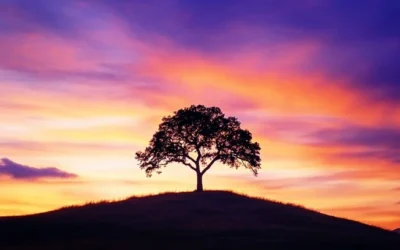It’s often said that no parent should have to bury their child; it defies the natural order of life. Yet, to bury your own child after they have been brutally murdered by their own father inflicts a primal wound on the heart beyond what most can imagine.
This is the wound that Rosie Batty has had to live with since her eleven-year-old son Luke was beaten with a cricket bat, and then stabbed to death, by his father in February 2014.
Rosie’s courage, compassion and extraordinary poise in the aftermath of the most horrific nightmare any parent could imagine inspired an outpouring of public love and admiration. As Australian of the Year, her relentless and passionate advocacy against family violence shone a spotlight on its widespread prevalence. Her ongoing work has not only contributed to systemic change within Australia but empowered the voice of women and victims of domestic violence the world over.
Rosie recently invited me into her home to share her story, but more so, to share her insights on learning to live with grief while also channeling her profound loss toward something that would make a meaningful impact for others.

Sitting at Rosie’s kitchen table, drinking tea, she opened up her heart to me in a very real, and somewhat raw, conversation for my podcast. I wasn’t sure where our conversation would go and simply let it unfold. We talked about many things – from the personal nature of grief and self-forgiveness to navigating friendships when life presses in and the levers to ending family violence.
One of the many valuable gems of hardwon wisdom Rosie shared was about self-trust and not underestimating our innate resilience. When we hear of the trials and tragedies others face, a common reaction is to think “Oh, I could never deal with that if it happened to me.” Rosie would have said the same thing. Yet in the midst of the most traumatic hours and moments of her life, she found within herself a deep well of resilience and resolve beyond what she herself had ever assumed she had.
Of course, none of us wish to have our courage tested, not even in small ways much less as Rosie did. Yet over the course of our lives, we will all be forced to confront situations we could never have predicted, much less have prepared for. Just as I always look for the learning in my own hardships, Rosie’s experience of refinding the ground beneath her after a profound loss holds a lesson for us all. That is, to reflect upon where we may be selling ourselves short and playing ourselves small because we’ve spun ourselves a story that we are not as brave or resilient as those ‘other people’ whom we decide are made of more mettle than ourselves. People like Rosie Batty. People like burns survivor, Turia Pitt, who has said that just because most of us have never been tested to the extreme doesn’t mean we don’t have within us the strength we admire in others.
If you listen to our conversation (and I hope you will), you will hear Rosie say how “We can never underestimate the resilience of the human spirit. Most of us are far stronger than we realize.”
Indeed we are.
Yet Nietchke’s well-worn maxim that ‘what doesn’t kill you makes you stronger’ is not true. It never was. Some people come out the other side of adversity with a closed mind, an angry heart, their minds shut off from all that might otherwise heal them. Others never come out the other side at all, defined by their adversity, a victim of self-pity, their future held hostage to the past.
Finding joy can be hard when your heart is as raw in sorrow as Rosie’s. Yet she has refused to give up on laughter (particularly at herself) and, as she shared in her book A Mothers Story, staying positive toward all the goodness life holds is a daily undertaking. “It would be easy to let this experience turn me into a bitter person,” she reflected, “but I want to use it to become a better one.”
The same is true for all of us. No matter how hard we may try to avoid the ravages on our hearts, we never can. Not if we also want to live truly joyful lives. As I shared in this previous post about my brother Peter’s death, to cut ourselves off from sadness is to also cut ourselves off from joy. The only thing we can ever really do is to open our arms wide to the full catastrophe of the human experience, and to trust that no matter how dark our days can be, how heavy our burdens can weigh, or how deep our wounds can cut, that we have it within us to rise up and once again know joy.
Only then can we regain our spiritual footing and forge a new path forward, not one that denies our sorrows or struggles, but one that draws on them to infuse a deeper dimension into our living; one that expands – not shrinks – our capacity for loving and laughing and, when the need arises, for letting go the future we had planned on living and for embracing the one we have.
I hope you will listen to my conversation with Rosie. More so, that it will help you to turn your own hardships and heartaches into living a more meaningful and wholehearted life.
Thank you for inviting me into your home Rosie. I’m honored to now call you a friend.






